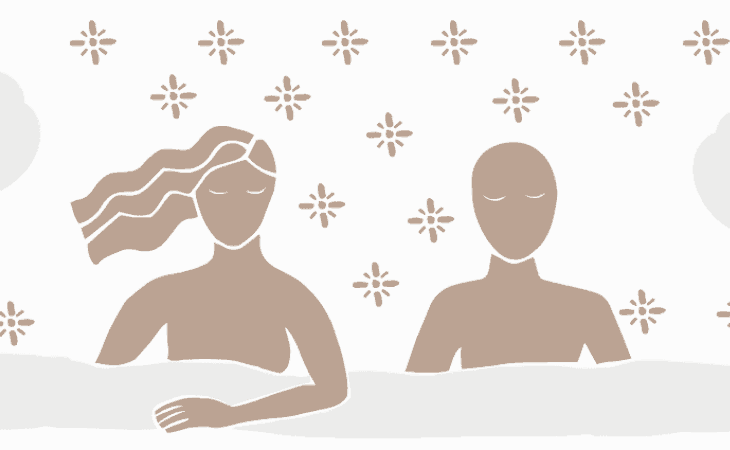“I’ll sleep on it.” It’s the phrase we often use when we don’t feel ready to make a decision. But can a night of sleep actually help you think more rationally?
Why “sleeping on it” is beneficial
It turns out the whole sleeping on it thing might just be worthwhile. That’s because rest recharges your brain, allowing you to view situations in a clearer light.
“We tend to concentrate better after good sleep,” says Chris Winter, MD, of Charlottesville Neurology and Sleep Medicine and author of The Sleep Solution: Why Your Sleep Is Broken and How to Fix It. “It helps us consolidate memory so we have more data available to us for making smart decisions.”
The science behind “sleeping on it”
Research from the Netherlands attributes the decision-making benefits that come from sleeping on it to the workings of your brain during sleep. John M. Grohol, PsyD, founder of PsychCentral, puts it like this: “Sometimes the more consciously we think about a decision, the worse the decision made. Sometimes what’s needed is a period of unconscious thought—equivalent to ‘sleeping on it.'”
In a paper for the American Psychological Association, Dutch researcher Ap Dijksterhuis, PhD, states that there are two reasons why unconscious thought leads to better decisions. “The first has to do with the different processing capacities of conscious and unconscious processes,” he writes. “Consciousness works in a serial fashion and has a small capacity. That is, it can only do one thing at a time, and it can only work on a very limited amount of information. Unconscious processes have the capacity to work on different things in parallel and can integrate a large amount of information.”
The second reason unconscious thought helps you make decisions is that “it seems to be better at weighting the relative importance of different attributes,” adds Dijksterhuis. He uses the scenario of someone buying a new car as an example. Let’s say you’re choosing between a car that has a good safety rating but few other features (limited colors, no cupholders) and a car that has lots of available features and colors but a poor safety rating.
“Most people would choose the former car over the latter, and if you ask people immediately after processing information about such cars, they indeed show a mild preference for the former car,” writes Dijksterhuis. “However, after a period of unconscious thought, this preference for the appropriate car has become much stronger. During unconscious thought, important matters become more important, whereas unimportant matters become more unimportant.”
While there is plenty of research in favor of sleeping on it, a study published in the Journal of Behavioral Decision Making suggests that it may not necessarily lead to easier decisions.
Related: Can you really learn in your sleep?
“Sleeping on it” won’t necessarily lead to easier decisions, though
For the study, two groups of participants were tasked with picking a laptop case from a choice of four options. All of the cases were of similar price, quality, and appearance, but they each had pros and cons.
One group selected their cases before going to bed, while the other waited to choose one until after an interval that included sleep. The unexpected result? The group that slept on it felt worse about their decision. “However, those who’d slept on it remembered more about the bags’ attributes,” Rebecca Spencer, PhD, one of the researchers, tells the Harvard Business Review. “That surprised us. The fact that they knew more about the products would suggest they’d be happier with their decisions, but they weren’t.”
Spencer notes that the group that slept on it was more likely to remember the positive features of the laptop cases and less likely to remember the negative ones. The reason this might’ve made them less happy in their decision, she theorizes, is because it “might be more difficult to make a decision by comparing good things with other good things than by comparing good with bad.” Still, it may be the case that those who weren’t initially happy with their decision would come to see it in a better light later on, points out Spencer.
The bottom line
If you’re torn on whether you should buy that dress or take that job, it can’t hurt to put off the decision until after catching those Z’s.




